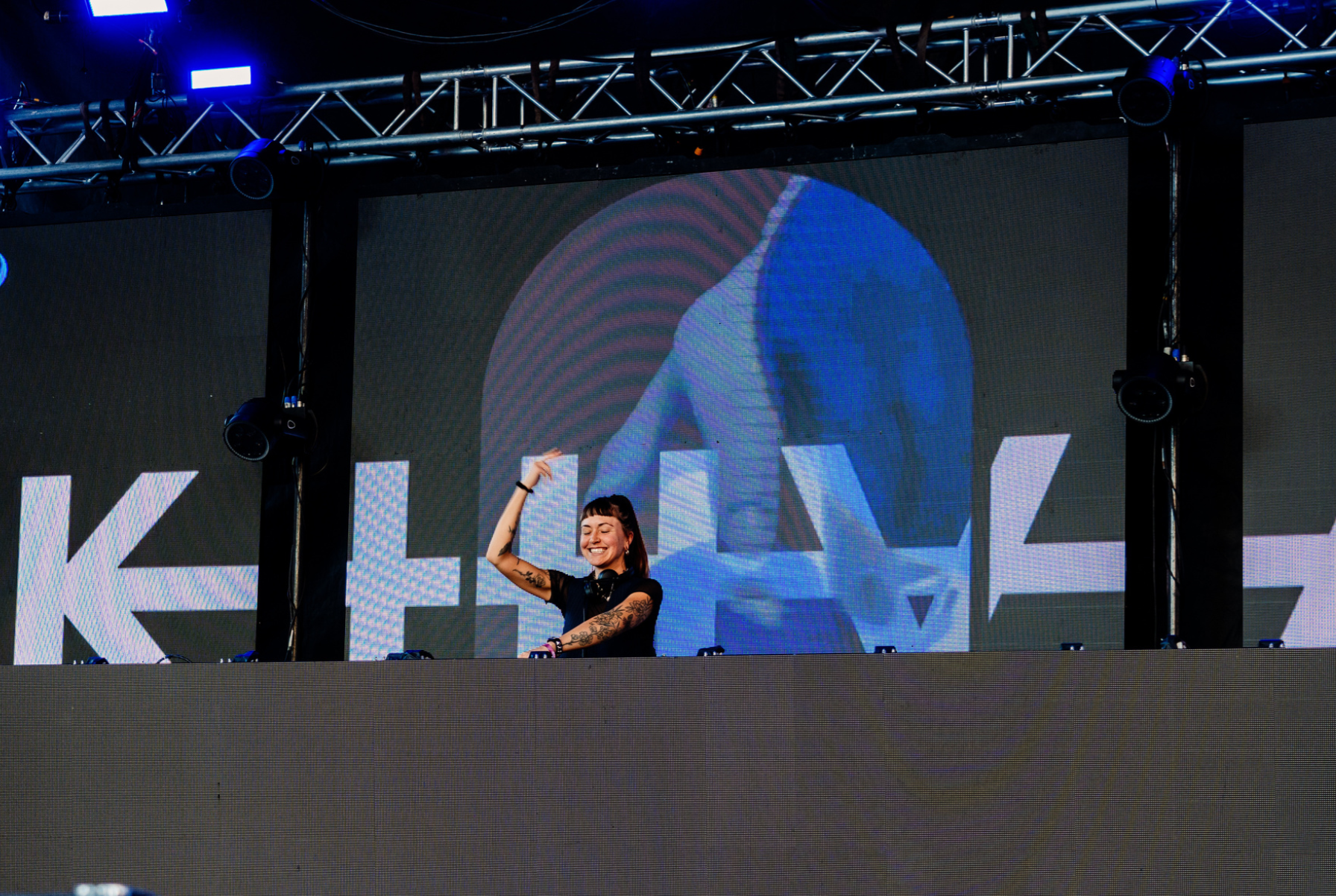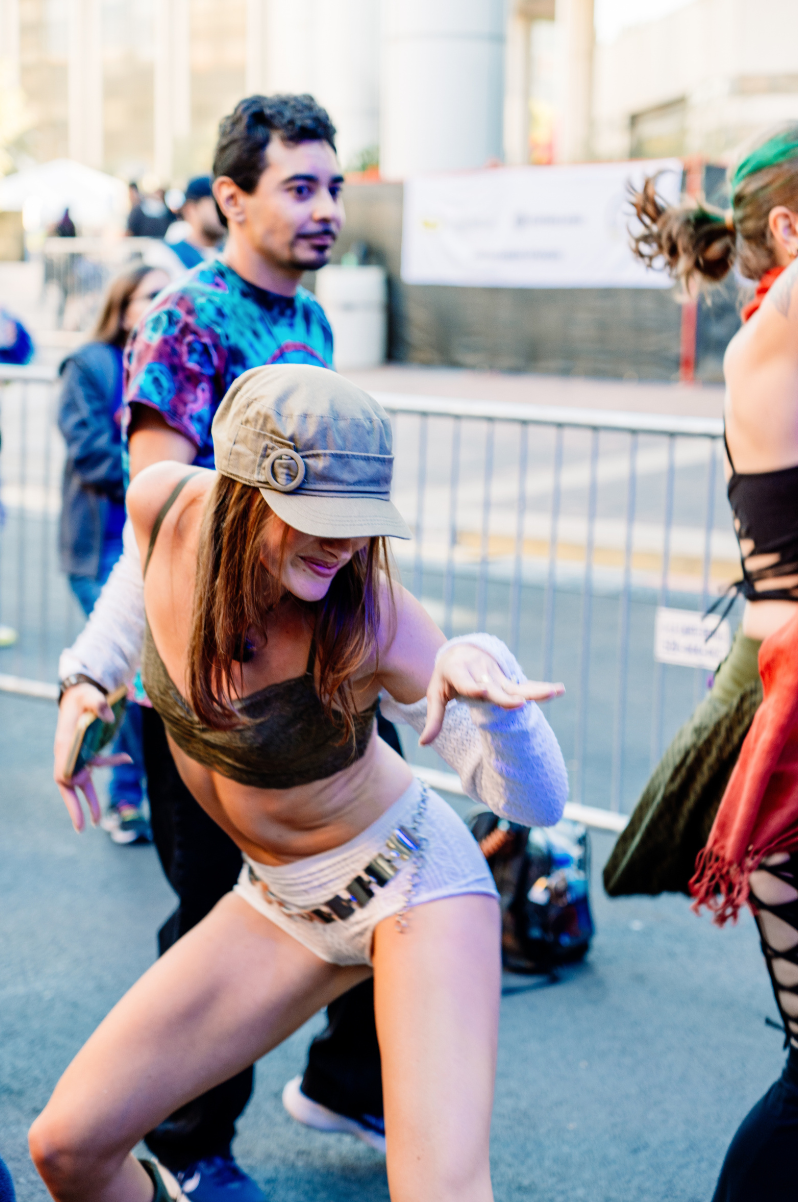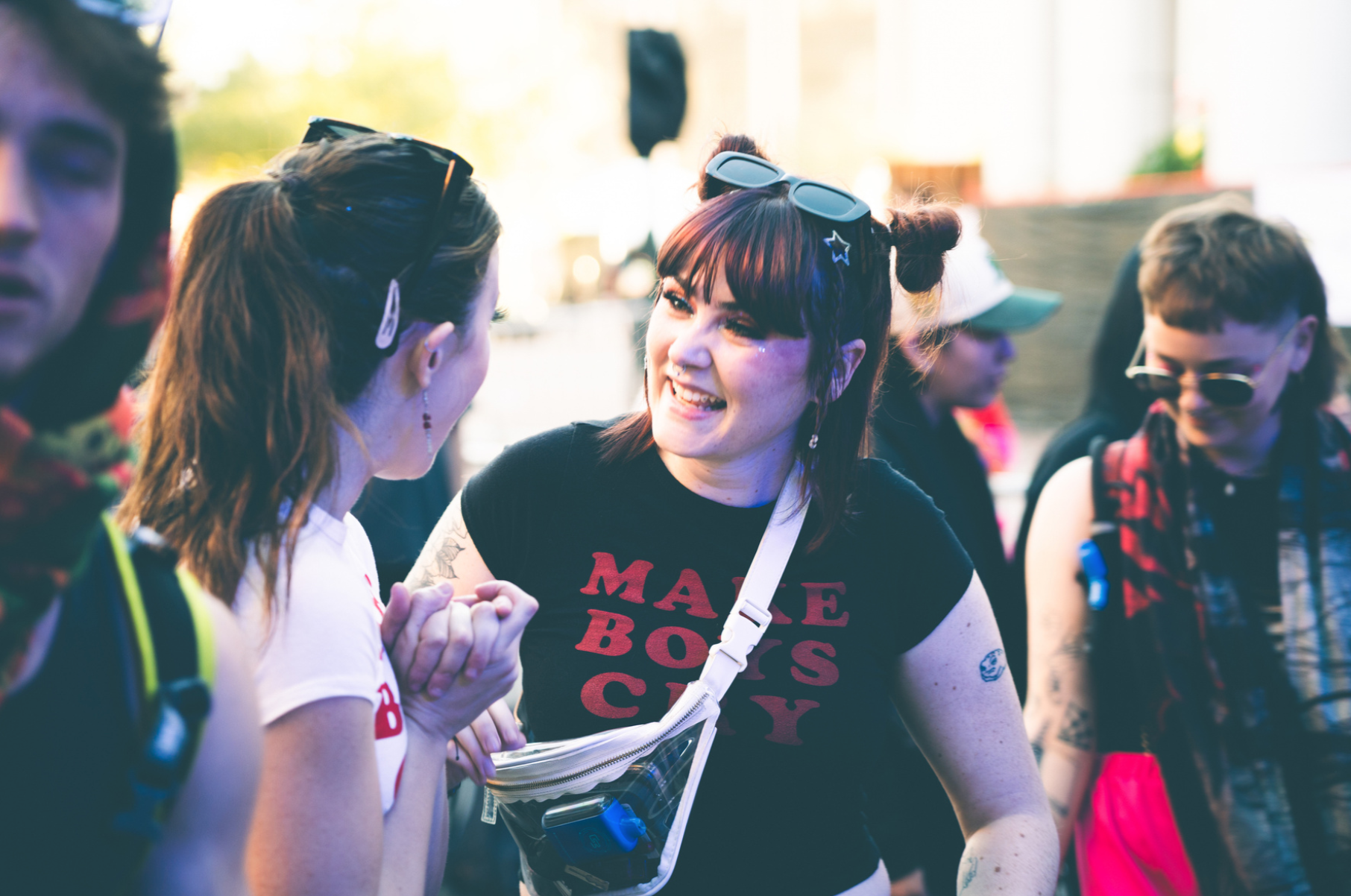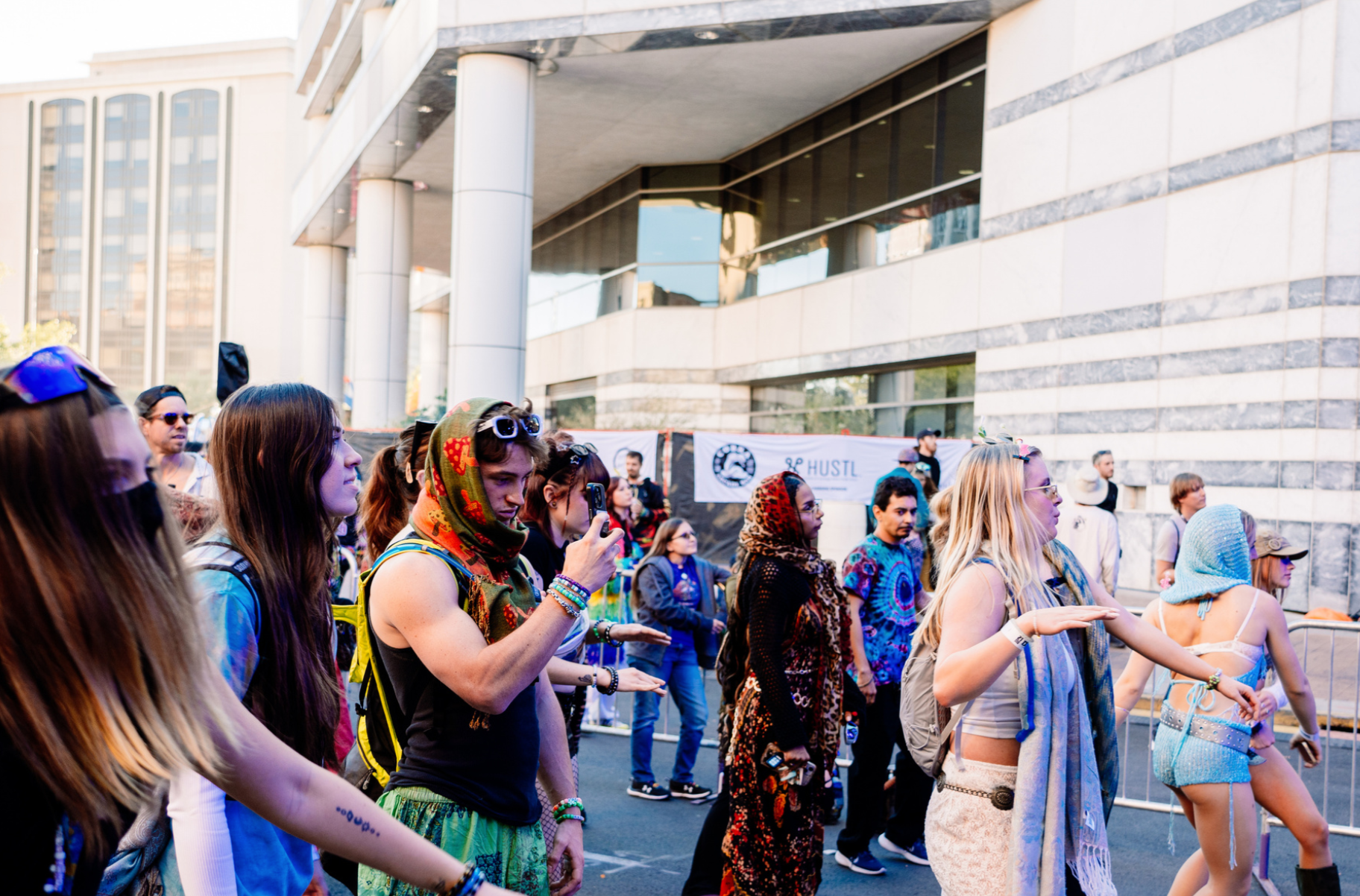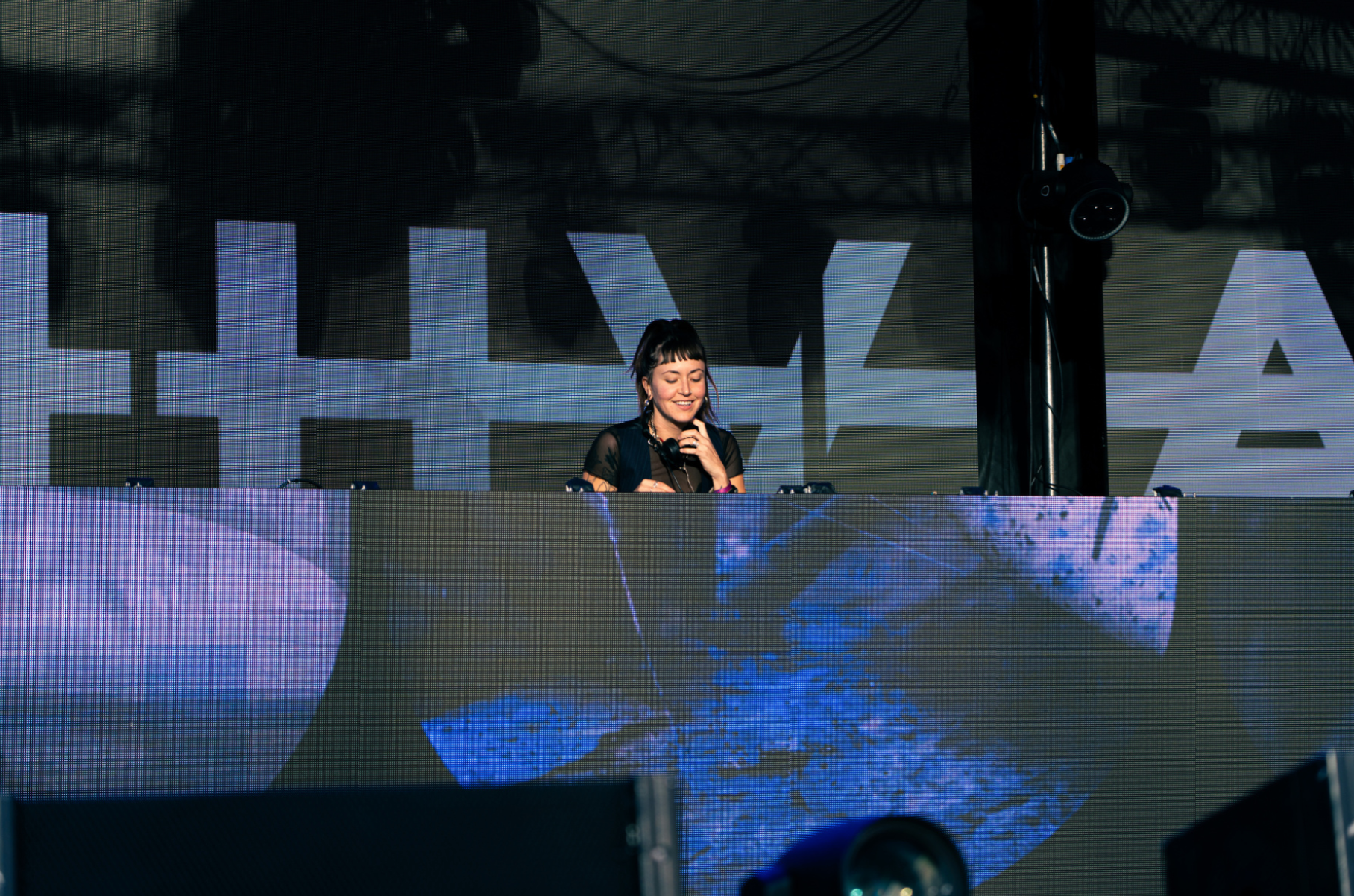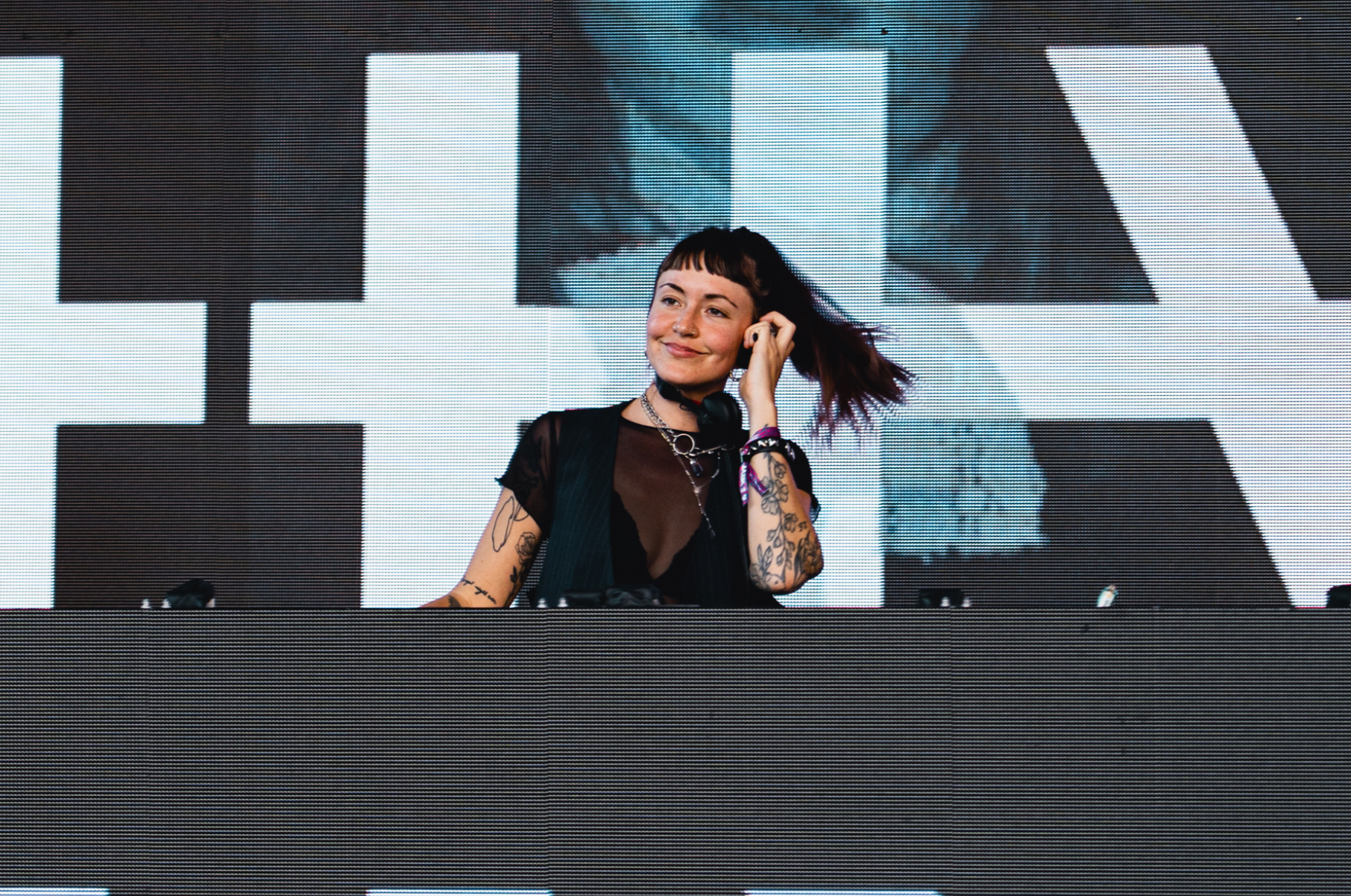
Khiva’s Evolution: Blending Poetic Lyrics with Deep Basslines
November 9-10, 2024 | Tucson, AZ
Written and Photographed by Alex Dehlavi @red_bot_
For years, Khiva has carved a unique niche in the world of electronic music, blending haunting basslines with poetic lyricism to craft immersive soundscapes that linger long after the last drop. Known for her ability to weave raw emotion and introspection into her music, Khiva is more than a producer—she’s a storyteller, a healer, and an alchemist of sound. From her roots in Vancouver Island’s metal and ska scenes to her rise within the dubstep community, she has drawn on her diverse influences to create music that transcends genre and resonates on a deeply personal level. In this conversation, we explore her creative process, the balance of light and dark in her artistry, and the deeply human experiences that fuel her sound.
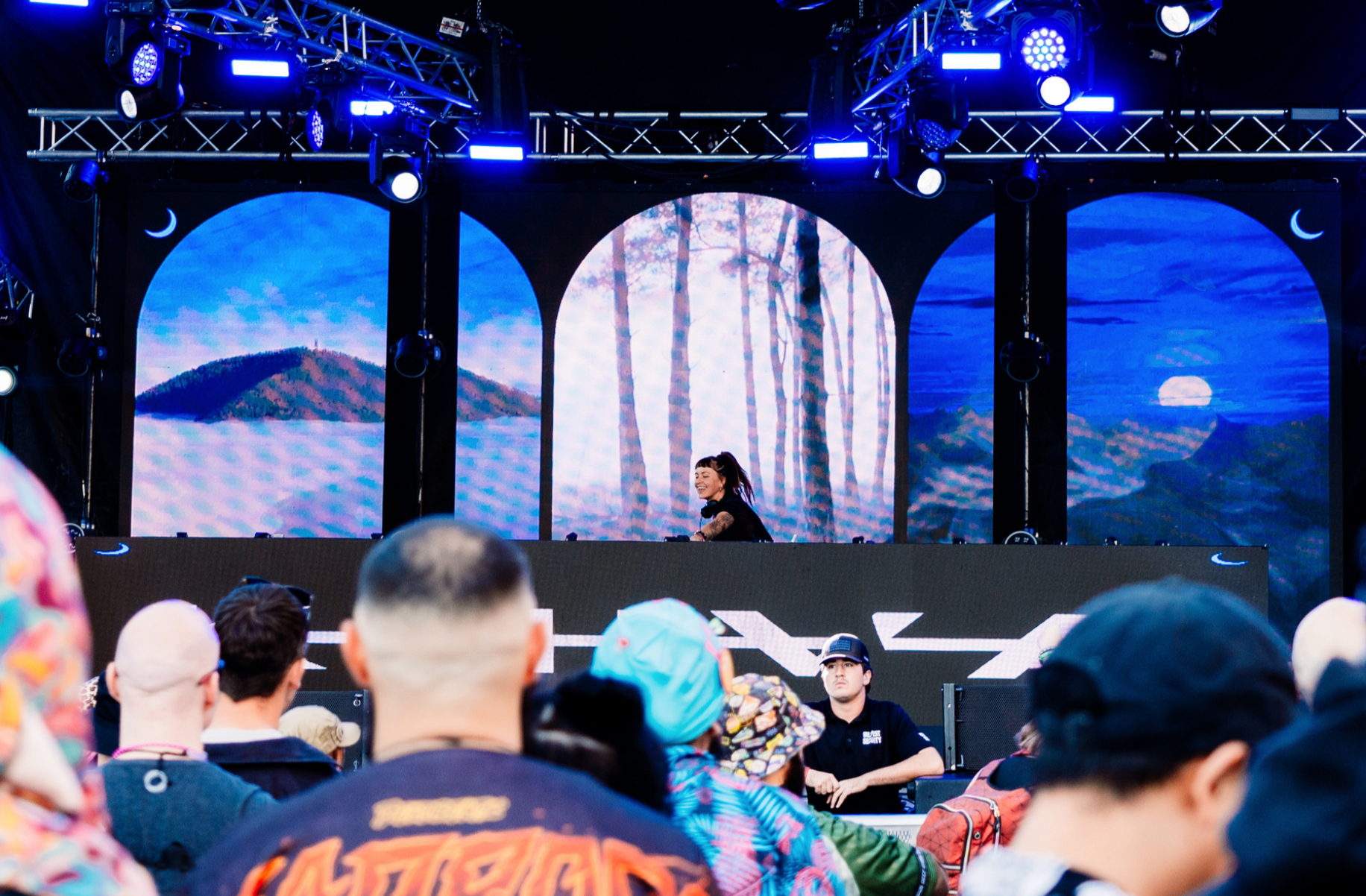
Your music often feels like a journey through shadow and light, how do you navigate balancing your own vulnerability and strength when creating tracks that resonate deeply with your listeners?
Khiva: I think the way and the reason that really pushes me forward to do anything in any form of art, at the end of the day, is to empower people, and to make them not afraid. That’s what it really comes down to is that, seeing both sides of the coin, and embracing both sides and finding that, that’s where the peace is, that’s where all the power is, that’s where all of the love is.
I put those emotions into what I create, because that’s what I need, right? That journey is so personal, and that’s what art is. It’s learning from yourself so that you can give that to others.
I saw a quote somewhere that said, “Once you’re free, it is your responsibility to help free others.” And that’s what it’s all about for me, and that is what music has always been about.
You’ve mentioned that song writing, and vocal expression are central to a lot of your projects, even if they don’t always make the final cut. What themes or emotions do you find yourself coming back to in your lyrics?
Khiva: To me everything always comes back to the same thing, like for instance sometimes I relisten to my songs and, it’s not even like I relisten to them, they just come into my head, because personally I think that I’ve just only ever written one song, and it just comes out in different ways.
The message at the very end, is ALWAYS the same, like a diamond refracted, it’s all just coming through in different ways that you can piece all together. For instance, I was hearing ‘Up to Bat’ in my head, and then maybe one day ‘Misplaced Apathy’ pops in my head and then I’m listening to the lyrics in my head, and I notice, “Oh yeah, I said the same thing in that song.” So it’s like really all saying the same thing, it’s all about coming back to center, coming back to source, coming back to your own truth, and recognizing that every single part of yourself makes up your perfection, every single part.
People sometimes say, “Oh, your music is dark” and this and that - but I don’t really hear it like that. But I think that’s why “Khiva” is so important to me, is because my personal persona on the other side - is kind of the opposite of “Khiva”. Well, not the opposite, but pretty light. So, it’s that flip side of really digging into that and seeing all of those parts that are quite painful. Like for me, the things that I talk about in all of my songs, yeah those are the painful things, those are the things that really f***ing hurt, but that’s what we have to resolve so that we can bring both sides together so that we can find our peace and find our freedom.
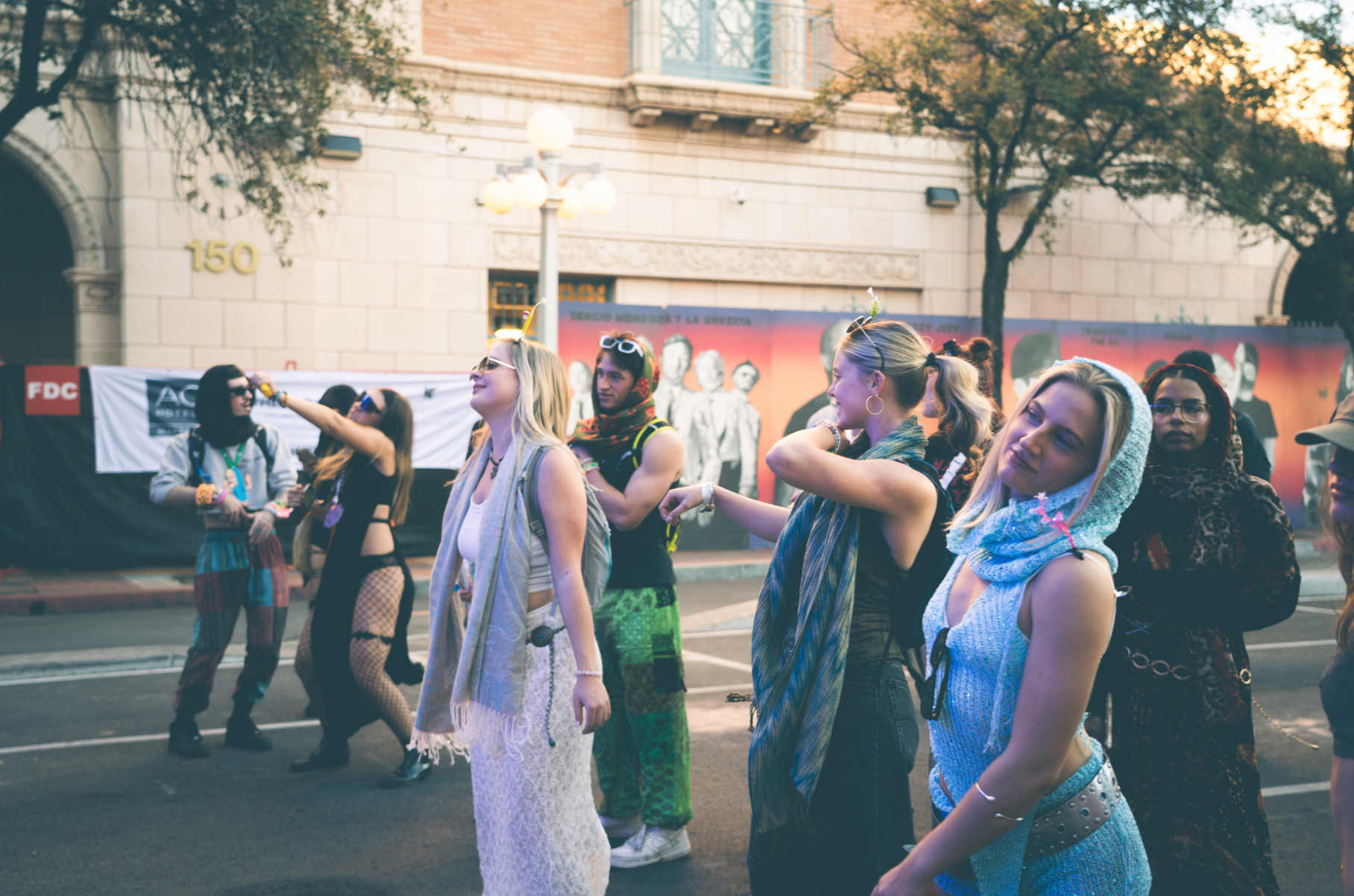
How did growing up in Victoria shape your passion for music? Can you share how you were first introduced to electronic dance music and which artists initially inspired your unique sound and rhythm?
Khiva: I feel like my style kind of reflects that grungy sailor essence, especially being that - one of my first festivals was ‘Ska fest’.
Growing up in Victoria, that's Vancouver Island, still next to the ocean. It really does have that vibe, kind of ‘rough-and-tumble’ cause of the elements.
I also went to a lot of metal shows when I was in high school, so that for me was my first kind of fore into being in music and stuff, not performing or anything, but just being there. But rock and that side of music is very much like my first love, also, world music, because that’s what I listened to when I was young and I still do.
As far as Electronic Music Festivals go there used to be a festival called VMF in Victoria, I think they only did it for a few years but that’s where I started to go to a couple of Electronic things, but had no f***ing idea what it was.
Though it really was ‘Shambhala’ that really made me realize that, like, “Woah, there is this whole other world.” , and I mean I saw your kind of usual suspects there like, I think I saw Stickybuds and Excision and stuff. But it was really when I saw Truth that everything changed the game, and that’s become very special because we’re all DDD (Deep, Dark And Dangerous) fam now.
It was really the bass at ‘Shambhala’ though that really was like “woah!” And then realizing that with a computer you can do anything and, for me, I think I always felt not ‘limited’ but, I’ve always written poetry and sang in my head and everything. So, it was this realization like, “oh I can do this on my own. I don’t need anyone or anything, I can just have a computer.”
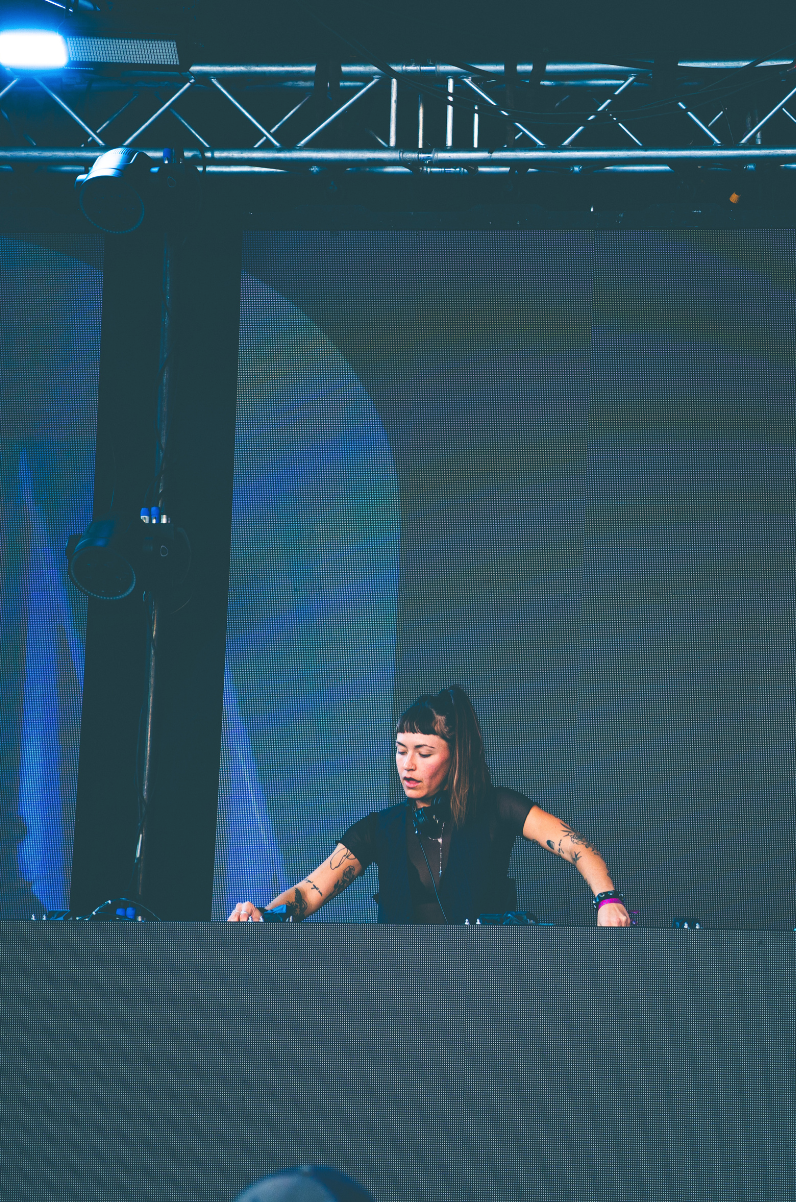
That’s really great. Like truly embracing the ‘one-man-band’.
Khiva: Exactly, a ‘one-man-band’! Then I just kind of brought my own kind of influences into it. Someone commented recently on my Instagram, “this reminds me of Alexisonfire” on one of my newer songs, and I was like, “that’s such a huge compliment!”, because obviously they’re such a big influence, especially being from Canada. I love live music and of course I do a bit of rapping and stuff sometimes - but it’s the live element of performance that is so important to me, as much as the actual bass and the movement and the dancing.
Your live shows are known for their unique energy and connection with the audience. How does experiencing that energy from your fans during performances influence and inspire your music production?
Khiva: To feel the energy of the crowd is so important and so inspiring on all levels - to go and continue to create; but also how important it is in the moment and at the show itself, to feel that feedback loop really is what makes an amazing show - its that collaborative effort, especially seeing people sing the words and just generally having a good. When I first started doing live stuff, I was petrified - it really wasn’t something that was done before, and it was just kind of new, and it still is like that. But to see that people actually like to listen to the words and vibe with something that is not your expected bass sounds, it feels amazing and I love being able to interweave them.
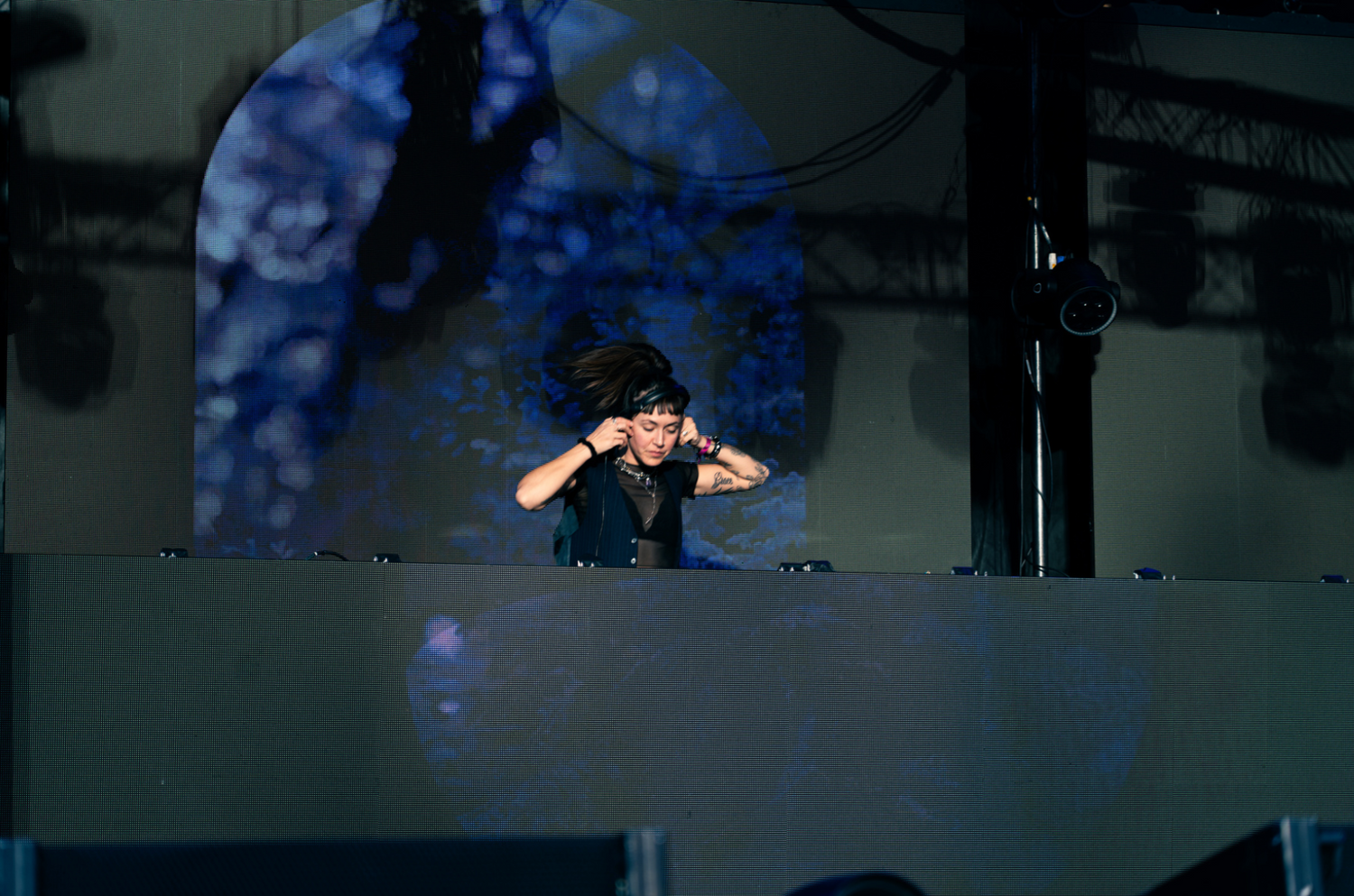
If you could speak to the version of yourself who just started producing music and experimenting with sound, what advice or insights would you share now that you’ve experienced the years of growth and exploration?
Khiva: There is nothing to be afraid of. That is all I would say, yeah. That’s what it all comes down to.
The electronic scene has shifted over the years with new subgenres and technologies, how do you stay true to your sound while embracing new trends and tools in music production?
Khiva: I think for me, that’s probably one of the easiest things to do, is stay true to my sound. Because, the thing about art is it’s this balance. Like if you are in the music world, it’s important to keep the mindset of making what you want to make, and I would keep making what I want to make regardless of anything. My art and my life are one in the same.
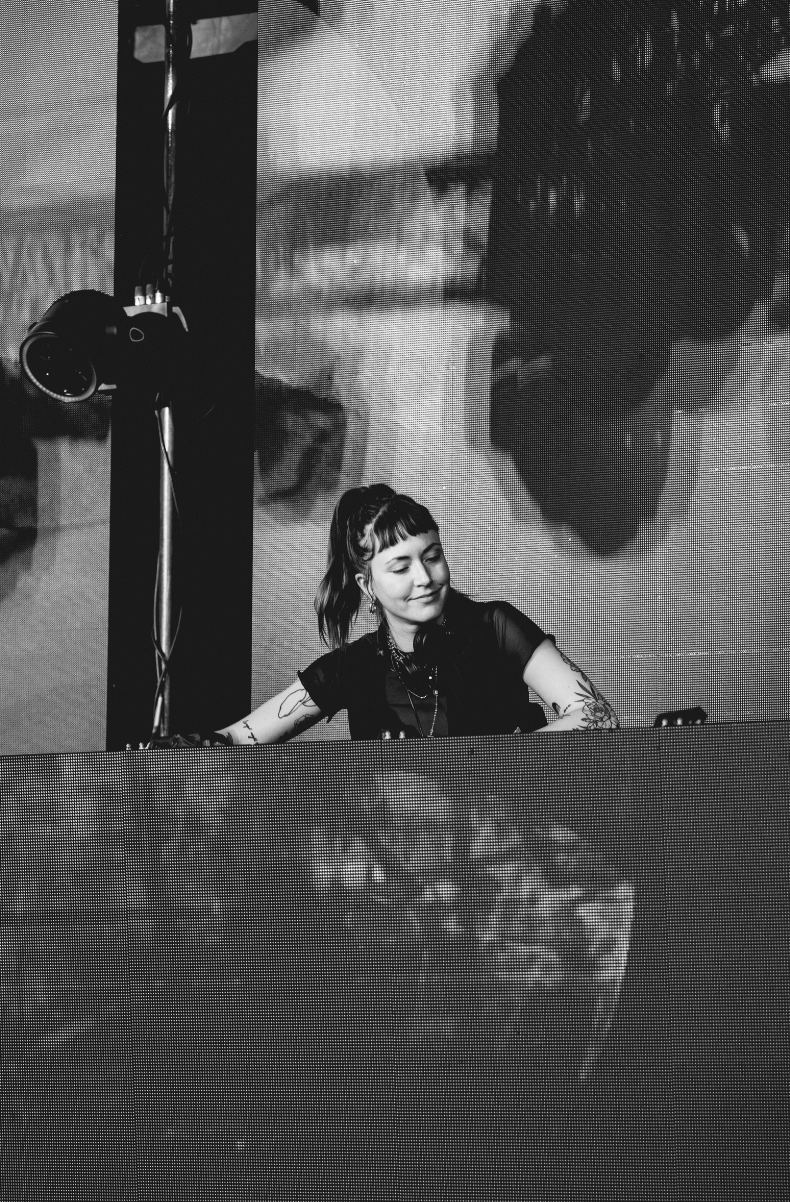
Favorite Track of 2024?
Khiva: Silence.
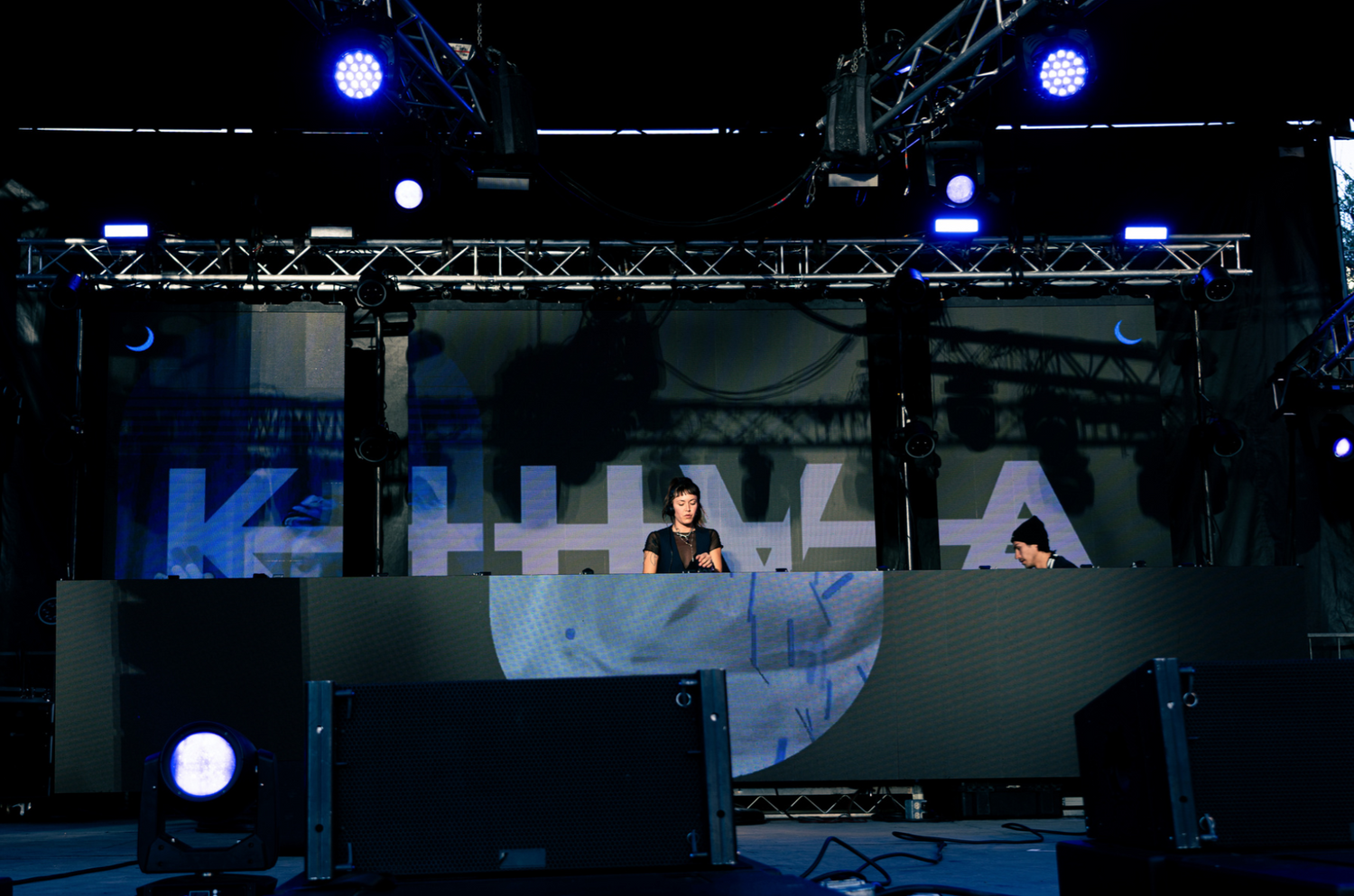
Are there any lasting things you’d like to say or promote?
Khiva: No, just keep being you and stay true to yourself and remember that you are love.
Khiva’s artistry is a testament to the transformative power of music. Through her work, she bridges the gap between vulnerability and strength, darkness and light, chaos and calm, offering listeners not just a sound but an experience. Her reflections on creativity, self-discovery, and staying true to one’s vision are a reminder that authenticity remains the most powerful tool for connection. As she continues to push boundaries and share her evolution with the world, Khiva invites us all to embrace our truths and find freedom in the flow of life—and sound.
